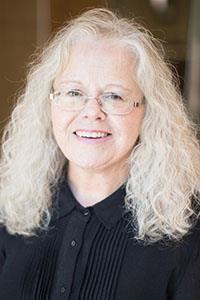If you came of age in the 1980s or earlier, you might remember the “Keating Five Scandal” and the collapse of Lincoln Savings and Loan Association. You would recall the larger savings and loan crisis of the 1980s and 1990s, where nearly a third of S&L associations in the United States failed because of what one compliance officer summed up as “some very bad, risky behavior.”
This compliance officer would know: She worked in the mortgage industry through the span of the S&L crisis. She was first at Federal Savings and Loan Insurance Corporation (FSLIC) until it went under, then at Resolution Trust Corporation (RTC), a now-defunct federal agency tasked with cleaning up the then-collapse of U.S. financial institutions: auditing failing institutions, rescuing some, and shuttering others.

She eventually became chief compliance officer of a bank. One day, a few months into her new position, a board member told her she was annoying.
“I was telling the [board] new laws and things that they needed to do,” she recalled. “He said I was like a flea. And as soon as he said that I just looked at him like, ‘I think that is going to stick.’ And it did.”
Felecia “Flea” Bowers loves the nickname. She embraces it with fondness decades later.
“It fits reality. Compliance is always nipping and biting at people to get things done or do things right,” she quipped. “We’re all fleas.”
Flea was honored for Lifetime Achievement in Compliance at the 2024 Excellence in Compliance Awards.
Flea has come a long way since her first job in 1977 as an S&L examiner. You might say she and the compliance profession “grew up” together, buffed and refined by the tumult of the mortgage industry’s ups and downs: from the S&L crisis of the 1980s-90s to the subprime mortgage crisis of the late 2000s.
As regulations were born and reborn through these crises, a whip-smart Flea burrowed into the fine print and made herself an expert on the nuances. While laws like the Truth in Lending Act (1968) and the Dodd-Frank Act (2010) evolved over the years, Flea sunk her teeth in and retained mastery-level subject matter expertise on their precise clauses.
Between 2015-18, Bowers helped create a specialized educational curriculum for compliance officers in the mortgage banking world—the first of its kind. She worked with the Mortgage Bankers Association (MBA) to develop the certified mortgage compliance professional (CMCP) certificate and designation. The curriculum focuses on servicing issues for mortgage bankers with government-sponsored enterprises like Fannie Mae and Freddie Mac as well as private investors.
“It was a long time coming,” she said. “We actually started developing a program probably 20 years ago. We met in Tennessee, and it just kind of fell apart; I don’t know why. But when [the MBA] resurrected it again, I and a few other people were not going to let it die.”
She remains an overseer of the curriculum today. Every few months, the MBA sends different sections of the course for Flea to audit and update. In 2021, the association awarded her the Ken Markison Legacy Achievement Award for her instrumental role in the CMCP’s design and development.
Along with being a curriculum developer, Flea is a keen student of compliance herself. She has been a certified regulatory compliance manager since 1993, holds a U.S. Housing and Urban Development certification as a direct endorsement underwriter, and received a secondary market certification through Stamford University in Connecticut.
Yet, she truly earned her stripes in compliance on the job.
More Excellence in Compliance Awards
- CCO of the Year: Gina Nese stays ahead of the curve
- Compliance Program: Revamped compliance at Albemarle
- Compliance Innovator(s): Creative engagement approach drives Johnson, Sudo
- Compliance Mentor: Q&A with Melanie Sponholz
- Rising Star: Q&A with Giovanni Corrado
After her stints at the FSLIC and RTC, she worked for a couple of other mortgage companies before accepting a compliance-prominent position at Placer Savings and Loan, which turned into Placer Sierra Bank, now a part of Wells Fargo. There, she truly found her foothold in compliance.
Afterwards, Flea served as CCO at Sierra Pacific Mortgage for more than 12 years. Currently, she serves as executive vice president, CCO at Homeowners Financial Group USA.
“One of the things the courses don’t teach you … is the ambiguities in the laws,” she said. “I always like to tell people, ‘Perception is 50-50.’ My perception of how I read something is going to be different than your perception … and it makes for some very lively discussions between people where you end up agreeing to disagree. I still have those discussions with federal and state examiners now.”
All in, Flea boasts 46 years of experience in the real estate finance industry, with more than 35 years as a compliance officer and examiner. The Lifetime Achievement winner graciously agreed to share some of her wisdom with compliance professionals at each stage of their careers.
Advice for newcomers to compliance today: “Learn what the position is and visualize how you see yourself in that role. And be prepared to multitask on a very fast level. College can prepare an individual on the necessary skills for reading and analysis, but this job requires you to listen to what people are saying; quickly analyze it; and think outside the box about the impact the issue will have on every function, department, and facet of the company. Then, you have to ascertain how to methodically roll out the change. Some are easy. Some have an impact no one else thought of.
“Also, networking is very important.”
Advice for mid-career compliance practitioners: “This is a crazy field to engage in, regardless of the industry. The basic skills I mentioned are transferable to any compliance-related arena, but the mid-career individual must continue to refine those skills while staying abreast of a plethora of changes coming at you from every direction. Hone your multitasking skills and learn to prioritize if you have not mastered that already. Those issues that will cost money (e.g., an enforcement fine, a lawsuit) are obviously paramount to tackle first.
“I encourage my support staff to spend a day working in other departments, too. It helps them understand the impact of the rules and regulations on the general staff; plus, it helps them in their analysis of how a law impacts another department.
“Continue to network. I participate in a blog of 1000-plus or -minus compliance professionals. It’s great.”
Advice for other executive or senior leaders in compliance: “The C-suite often views a compliance person as a requirement and not a valuable contribution to the company. Some do not see the value that a tested and functional compliance management program brings to the company in saving money. They view compliance officers as expenses only.
“The compliance officer should be attending all meetings for business planning, new products or services, changes in products and services, etc. because we will sit in that meeting and perform the activities outlined above: listen, read thoroughly, and analyze the impact on the rest of the company.”


















No comments yet